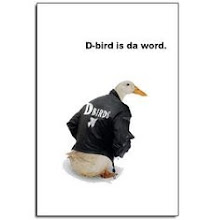So yesterday I'm pootling through my Twitter stream, as you do, and read this:
Just now reading this @wsj piece on YA books. Awful. http://t.co/w485J0I Glad @neilhimself has joined the rebuttal.
(note: for the sake of brevity I've edited the tweets quoted here so they're just the tweet without the tweeter or time/date stamp; you can find the original tweets on Twitter, all but one at #YAsaves). Tweets are in red. (there are a LOT of links in this post, and I was having trouble with the html on one (couldn't work out which one among so many). I 've reformatted this blog post so for now you'll have to cut and paste the links within the tweets rather than clicking through. Figured I'd rather have this published and readable and useful than have it saved as a draft while I finetoothcomb the html, which I ain't got time to do right now! You have got the article and hashtag link hyperlinked.)
What? I wonder. WSJ is the
Wall St Journal (in which I've read a bunch of interesting articles before). @neilhimself is the Twitter username of author Neil Gaiman, who you might remember weighed in on the side of the angels in the recent interrogations of teacher librarians in Los Angeles. If he's rebutting this article... and there's a link to follow, so I follow it.
The article is
"Darkness Too Visible : Contemporary fiction for teens is rife with explicit abuse, violence and depravity. Why is this considered a good idea?" by Meghan Cox Gurdon. Here is an extract:
How dark is contemporary fiction for teens? Darker than when you were a child, my dear: So dark that kidnapping and pederasty and incest and brutal beatings are now just part of the run of things in novels directed, broadly speaking, at children from the ages of 12 to 18.
Pathologies that went undescribed in print 40 years ago, that were still only sparingly outlined a generation ago, are now spelled out in stomach-clenching detail. Profanity that would get a song or movie branded with a parental warning is, in young-adult novels, so commonplace that most reviewers do not even remark upon it.
If books show us the world, teen fiction can be like a hall of fun-house mirrors, constantly reflecting back hideously distorted portrayals of what life is. There are of course exceptions, but a careless young reader—or one who seeks out depravity—will find himself surrounded by images not of joy or beauty but of damage, brutality and losses of the most horrendous kinds.
Now, whether you care if adolescents spend their time immersed in ugliness probably depends on your philosophical outlook. Reading about homicide doesn't turn a man into a murderer; reading about cheating on exams won't make a kid break the honor code. But the calculus that many parents make is less crude than that: It has to do with a child's happiness, moral development and tenderness of heart. Entertainment does not merely gratify taste, after all, but creates it.
If you think it matters what is inside a young person's mind, surely it is of consequence what he reads. This is an old dialectic—purity vs. despoliation, virtue vs. smut—but for families with teenagers, it is also everlastingly new. Adolescence is brief; it comes to each of us only once, so whether the debate has raged for eons doesn't, on a personal level, really signify.
It didn't take long for this discussion to take off on Twitter, and the hashtag which emerged to tag tweets about this was #YAsaves. If you're a teacher librarian reading this (or a librarian), then you'll know what a subject heading is. If you're a library user, you've used them. On Twitter, hashtags help you follow conversations and discussions and topics. Some examples: #austl for tweets of interest to Australian teacher librarians; #YAlit for young adult literature; #tlchat for teacher librarian topics generally, and also scheduled teacher librarian chat sessions on Twitter. And so on. Anyone can invent a hashtag, and sometimes people use them for fun (#sorightnowihavehadenuf).
OK, back to our controversial article. Within minutes, this was in my Twitter stream:
follow #YAsaves for some amazing stories about how books change kids' lives, in response to a negative @wsj article about teen fiction.
There's the hashtag, to facilitate the discussion.
@YAsaves.
The tweets started coming thick and fast (and while every tweet tagged with #YAsaves would be findable with that tag, remember that all I get in my Twitter stream are tweets from people I follow and tweets they have retweeted, which are signified by RT or via).
As the discussion matured, it travelled from initial reaction to analysis:
RT @NovelNovice: Staffer Steph responds to @WSJ attack on YA: RT @Steph_Lawton: A dissection of the latest att… (cont) http://deck.ly/~YS59J
And the
Wall St Journal was paying attention, as any business using social media should; interactive, dynamic communication is what it's about. I was dipping in and out of Twitter during the day, so while I do follow @WSJ, I find out about their response from a RT (their tweet was retweeted by someone else I follow):
RT @WSJ: We hear your tweets about this YA review: http://on.wsj.com/mD7f7Y Comments welcome on Facebook, too: http://fb.me/wsj cc
A lot of tweets were individuals commenting on how important particular YA books were to them, how important it was/is to them to have books of all sorts and topics and themes to read. The discussion was a blend of personal stories, perspectives on censorship and more. Authors were weighing in to the discussion:
If you haven't seen them all together, here are @libbabray's (awesome) tweets defending YA fiction: http://bit.ly/krRKfG
How big was this discussion getting? From another tweet:
Guess what? #YAsaves is now the third highest trending topic in the US. That took all of about 20 minutes. Get it, @wsj? Book banners?
That tweet was twelve minutes after the very first tweet I quoted at the start of this blog entry. Shows how fast the impact of a topic can be on Twitter, and also how many people are passionate about young adult literature.
Author Holly Black wrote this:
Honestly, @wsj, do you think we just make this stuff up? The darkest parts of many of my books came directly from my teenage life. #yasaves
From author Scott Westerfeld:
You guys on #YAsaves are all so awesome. Seriously, I can't imagine a better bunch of people to work for.
and from author Justine Larbalestier:
#yasaves is trending world wide. @libbabray; @maureenjohnson started something incredible @wsj claims 2 be listening. Wow.
The
Wall St Journal was indeed still paying attention - this is a mere 64 minutes after that first tweet I quoted:
What young-adult fiction means to you: a selection of touching #YAsaves tweets http://bit.ly/myZFgt (Scroll with arrow keys.)
This opinion made me chuckle. I know kids who'd agree!
And sometimes teens just need a freakin' awesome vampire/demon/werewolf/fallen angel/ghost/love story/dystopian. OKAY??? #YAsaves @wsj
And here's a quote I'll have to save for future use in other situations...(as well as another link to follow related to this #YAsaves discussion):
"Books are, at their heart, dangerous." by @wsj (featuring @libbabray) http://t.co/AVoxOtZ
The discussion goes on: I had lots of other things to do yesterday, so was only dipping into Twitter from time to time.
If you go to look at the #YAsaves discussion on Twitter, be aware that the downside of a trending (popular) topic is that the bots and spammers and rubbishfolk get onto it. If some of the tweets listed under this hashtag look like gobbledegook, ignore them - they are rubbish - and scroll down through the list to the relevant ones.
I'm sure this discussion isn't over. It will flow on into blog entries (for example, like the one you're reading now, and I'm sure many many more) and other commentary. The tweets I've used here were written over less than two hours, and demonstrate the dynamic and exciting possibilities of microblogging (140 characters max per tweet? Plenty!) and its immediacy. I didn't contribute to the discussion (then: guess I am now!), just watched and read and followed links and considered the issues, all relevant and important to teacher librarians.
Cheers
Ruth
Have I persuaded you yet of the educational value of Twitter for teachers' professional development? Yes? No? Stay tuned....
Later this tweet came through:
Excellent slideshow compilation of #YAsaves tweets. Powerful. http://t.co/RLZvVBG
and these:
I should be reading. Instead, I just blogged my response to the @wsj article http://goo.gl/J5Gpf #YAsaves
Persnickety Snark: YA Saves: WSJ thoughts... http://t.co/FaAqrG8 - - - so I dusted off the blog...
RT @maureenjohnson: The @wsj has about 20 comments. Here are our 15,000+. http://dft.ba/ /-yasavestweets #YAsaves
RT @melissa_marr: RT @lbschool: "And here is an awesome response to the @WSJ article. Preach it! http://fb.me/CnxI0XGW " oh, YES #YASaves!
The beauty of YA is that it’s filled with books & authors who are not afraid to tell the truth to teens #YAsaves - http://wp.me/pIc5A-5lr
http://on.wsj.com/kctOKS Here is a link wherein you can see the comments to the @wsj article. Thanks, @ColleenLindsay! #YASaves
Death. Loss. Pain. Anguish. Joy. Love. Sex. Freedom. Growth. Wonder. Sorrow. Bliss... disguised as "kids' stuff." #YAsaves
(To find the originals, go to the
#YAsaves hashtag on Twitter).













































